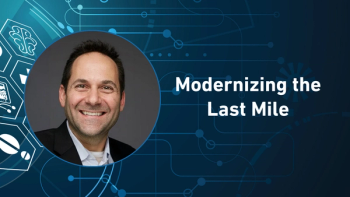
EHR systems are delivering results for pharma clinical outreach
Practice Fusion taps into a 38-million-patient database
With funding support from an undisclosed pharma manufacturer, Practice Fusion (San Francisco) has recently completed a project to encourage physicians (typically those using the company’s electronic health-records [EHR] system) to gather data on patients’ weight and body mass index (BMI) during routine checkups. This should be a fairly standard practice, but like many tasks heaped on healthcare providers, it is irregularly followed. The campaign alerted over 50,000 healthcare providers over a 12-month span, and quintupled the number of patients leaving their doctor’s office with a weight management plan—including, where medically recommended—a prescription for anti-obesity drugs. Ongoing data collection will eventually demonstrate the relative value of treatment plans for obesity.
Dorothy Gemmell, a recently hired SVP for life science partnerships at Practice Fusion, says that pharma interest in collecting such data is rising rapidly. The obesity study is not the first that the company has conducted (others have involved overactive-bladder research with Astellas Pharma, and AstraZeneca for asthma); and the company is ramping up its capabilities in line with the heightened pharma interest. “Among EHR vendors, Practice Fusion has one of the largest concentrations of patients in ambulatory care settings,” she says. Like some other EHR vendors, the company has status as a HIPAA-compliant business associate of healthcare providers; deidentified data thus flows through the company’s databases and can provide insights not easily obtained from traditional retrospective claims data sets. (“Business associates,” per HIPAA rules, are supposed to provide the same privacy and data-security measures as healthcare providers themselves.)
Only about half of the leading EHR vendors allow for pharma interaction with their data or their customers; Practice Fusion is pursuing a strategy of offering its platform at little or no cost to providers, and generating revenue from clinical decision support program (like the obesity study); direct promotion to physicians; or information resources at the point of care for patients. Late last year, it announced a partnership with CoverMyMeds, another IT company that distributes prior-authorization forms and information to healthcare providers dispensing specialty pharmaceuticals.
According to the February issue of an
Newsletter
Stay ahead in the life sciences industry with Pharmaceutical Commerce, the latest news, trends, and strategies in drug distribution, commercialization, and market access.




